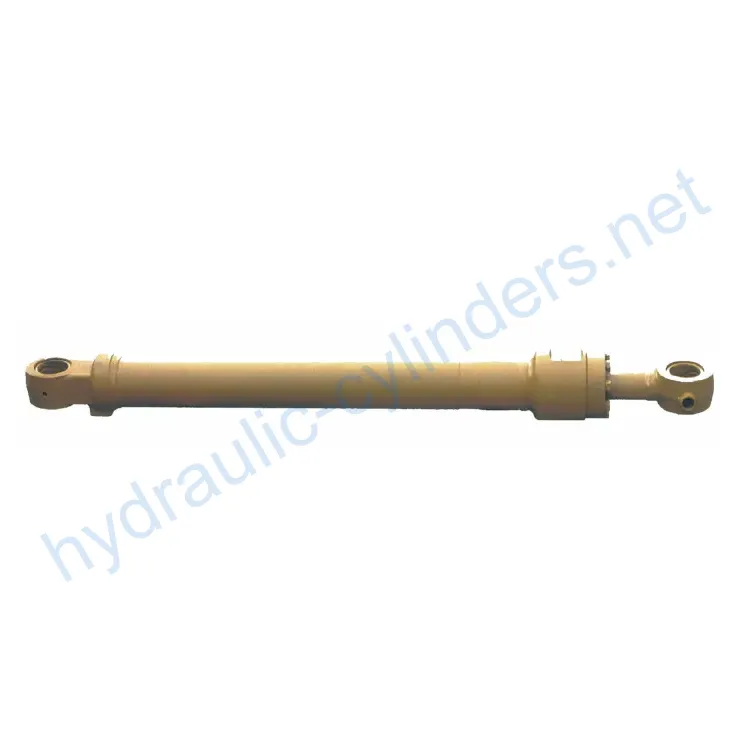Boom Cylinder For Yugong WY15-7
Som en af producenterne, leverandørerne og eksportørerne af mekaniske produkter tilbyder vi hydrauliske cylindre og mange andre produkter.
Kontakt os for yderligere oplysninger.
Mail:sales@hydraulic-cylinders.net
Producent, leverandør og eksportør af hydrauliske cylindre.
Boom Cylinder For Yugong WY15-7
Product Overview
The Boom Cylinder for Yugong WY15-7 is a specialized hydraulic cylinder designed for controlling the movement of buckets in various heavy machinery. Hydraulic cylinders are critical components in hydraulic systems, allowing for precise control of the movement and positioning of equipment. This particular boom cylinder is integral to the function of excavators, backhoe loaders, and front loaders, enabling the bucket to lift, lower, and tilt efficiently, thereby facilitating material handling tasks.
Bucket cylinders are hydraulic cylinders specifically used to manage the action of digging and lifting attachments, acting as the backbone of many construction and agricultural machinery operations. The hydraulic system’s power, combined with the mechanical advantage provided by the cylinder, allows for heavy loads to be maneuvered with ease. With an emphasis on reliability and performance, the Boom Cylinder for Yugong WY15-7 ensures that operators can perform tasks safely and effectively.
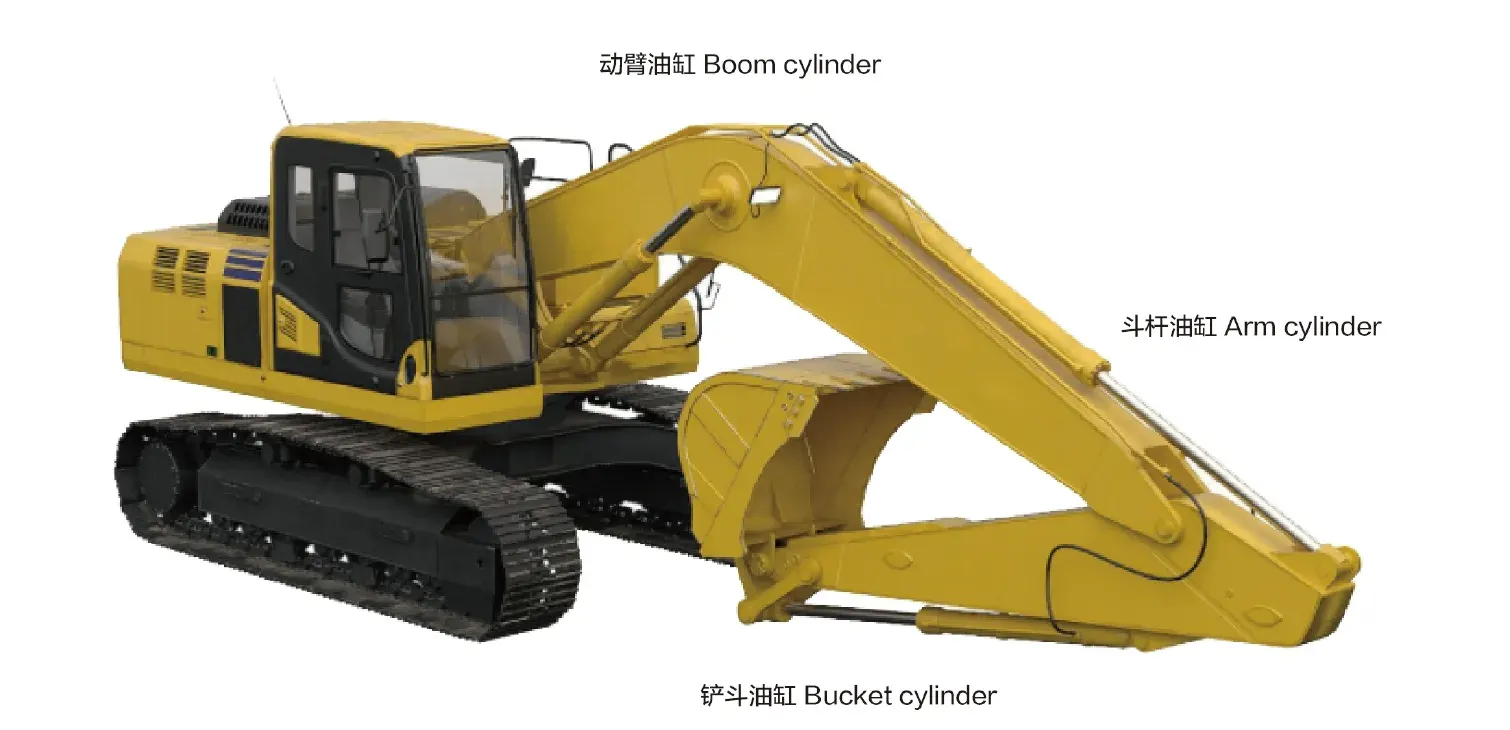
Features of Boom Cylinder for Yugong WY15-7
- High Strength and Durability: Manufactured from high-strength steel or aluminum, this cylinder can withstand high pressure and heavy loads, making it suitable for harsh working environments. The design takes wear resistance and corrosion resistance into account, extending its lifespan.
- Efficient Hydraulic Operation: This cylinder utilizes hydraulic oil pressure to achieve smooth retraction and extension, quickly responding to operator commands and providing powerful push and pull force, ideal for handling heavy and complex tasks.
- Diverse Options: The Boom Cylinder is available in single-acting (using hydraulic action in one direction) or double-acting (using hydraulic action in both directions) configurations to meet various operational requirements. Some models feature telescoping designs that allow for greater extension without increasing external dimensions, which is perfect for applications with limited space.
- Precision Engineering: Each cylinder is crafted with precision to ensure optimal performance and longevity, incorporating advanced technology in its manufacturing process.
- Compatibility: Our products serve as perfect replacements for various hydraulic cylinders, ensuring seamless integration and operation across different machinery models.
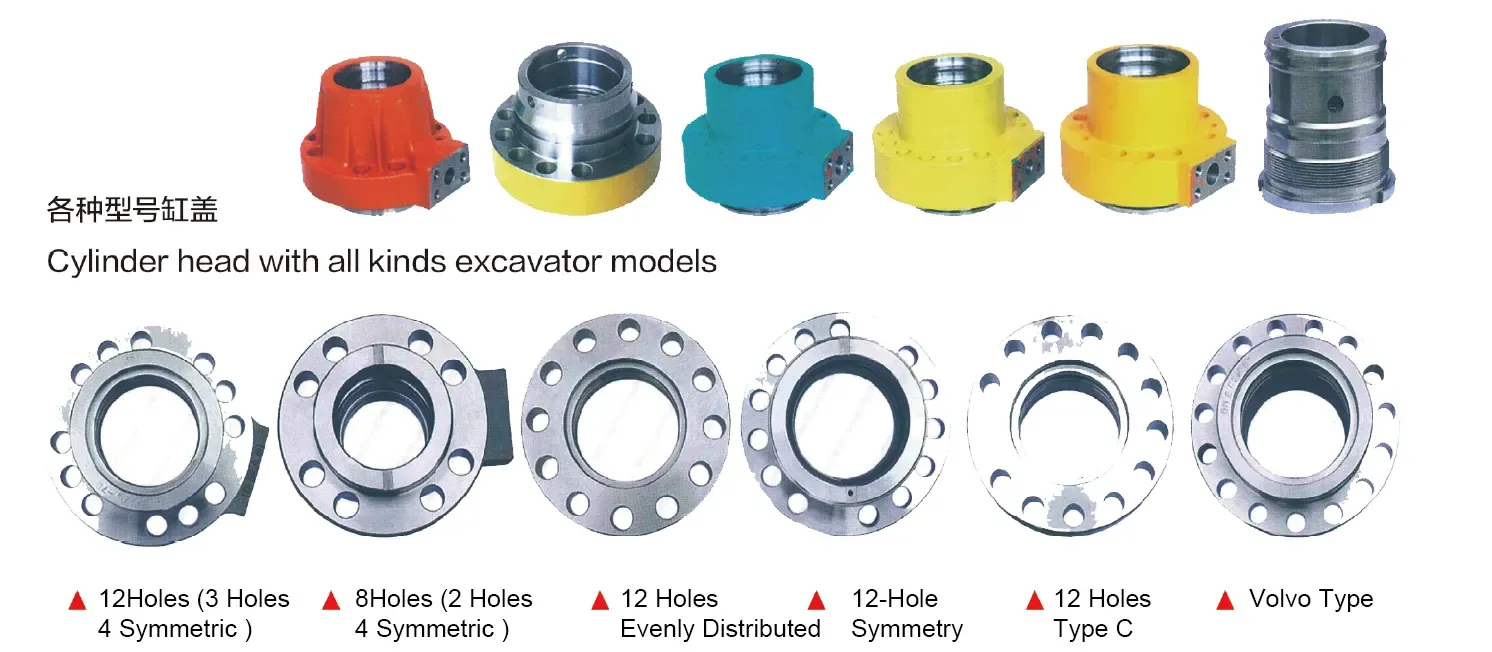
Applications of Boom Cylinder for Yugong WY15-7
Construction Equipment
In excavators, the Boom Cylinder plays a vital role in digging, loading, and moving soil or debris. It allows for precise control of the bucket’s positioning, enabling operators to work efficiently and effectively. In backhoe loaders, the bucket cylinder aids not only in excavation but also in lifting, making it essential for performing a variety of tasks on construction sites.
Agricultural Machinery
In front-end loaders, the Boom Cylinder is crucial for scooping, lifting, and transporting soil, hay, and other materials. This hydraulic component ensures that agricultural tasks are carried out swiftly and with minimal effort, enhancing productivity in farming operations.
Excavators
The Boom Cylinder facilitates the digging action by allowing the bucket to penetrate the soil effectively. This design is vital for achieving deep digs and ensuring that operators can perform their tasks without excessive strain on the machinery.
Loaders
In front loaders, the Boom Cylinder is responsible for lifting and dumping loads efficiently. Its reliable performance ensures that materials can be moved quickly, reducing downtime and increasing overall productivity on the job site.
Design Considerations and Selection Criteria
Load Capacity
When selecting a boom cylinder, one of the primary considerations is its load capacity. The cylinder must be able to support the maximum weight it will handle during operation. This involves evaluating the hydraulic system’s specifications and ensuring that the cylinder can deliver the required force without compromising safety or performance. A thorough analysis of load requirements is essential to prevent cylinder failure and ensure safe operations.
Sealing Performance
Sealing is a critical aspect of hydraulic cylinder design. To maintain optimal performance and efficiency, the seals must prevent hydraulic fluid from leaking while allowing for smooth cylinder movement. High-quality seals (like piston seals and rod seals) made from durable materials such as polyurethane or nitrile rubber are essential for maintaining pressure and minimizing wear. Proper sealing contributes to the longevity of the component and the entire hydraulic system.
Durability
Durability is crucial for hydraulic cylinders, especially in demanding environments. The materials used in construction must withstand wear and tear, corrosion, and exposure to extreme conditions. High-strength steel or aluminum is commonly used, with surface treatments applied to enhance resistance to abrasion and environmental factors. Choosing durable materials ensures that the cylinder can perform reliably over its intended service life.
Safety Features
Safety is of paramount importance when dealing with heavy machinery. The boom cylinder should incorporate safety features such as pressure relief valves to prevent over-pressurization, as well as fail-safes that can lock the cylinder in place if hydraulic pressure is lost. These features protect both the operator and the equipment from potential accidents or injuries.
Maintainability
Ease of maintenance is another key consideration in hydraulic cylinder design. The cylinder should allow for simple maintenance tasks such as oil changes, seal replacements, and inspections. An accessible design can significantly reduce downtime and maintenance costs, ensuring that operators can keep their machinery in optimal working condition with minimal hassle.
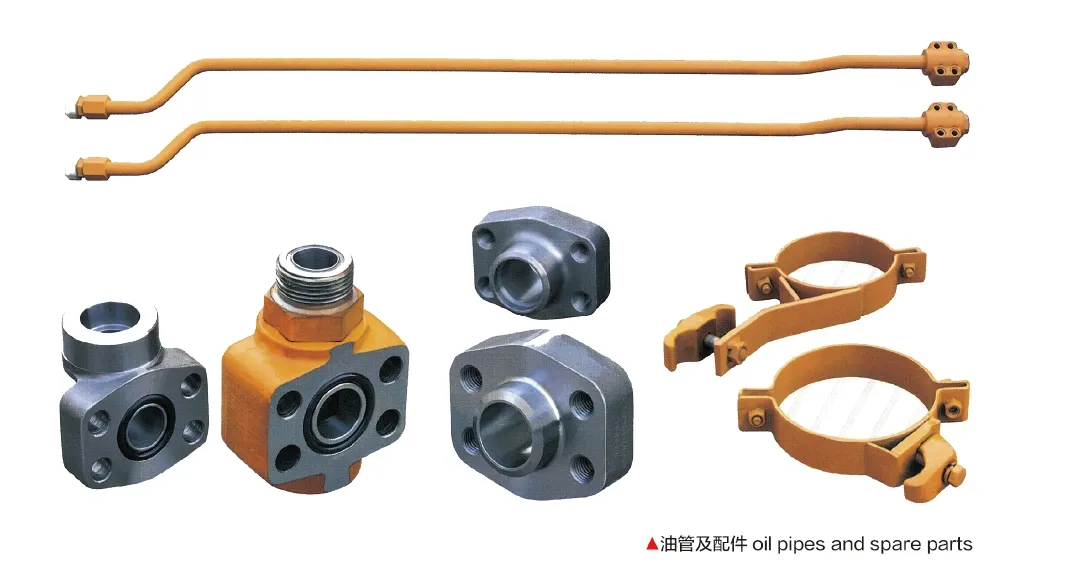
Sealing and Lubrication
Effective sealing and lubrication are vital for the optimal performance of hydraulic cylinders. Various sealing elements, such as piston seals and rod seals, play a crucial role in maintaining pressure and preventing leaks. Seals made from wear-resistant materials like polyurethane and nitrile rubber are commonly used due to their durability and flexibility.
The cylinder body and threaded end surfaces undergo fine machining to enhance wear resistance and ensure a proper fit. Regular lubrication with hydraulic oil is essential to minimize friction and wear, contributing to the longevity and efficiency of the hydraulic system. Proper lubrication practices help maintain optimal cylinder performance and prevent premature failure, ultimately reducing maintenance costs.
Regular Inspection and Preventive Maintenance
- Visual Inspections: Regular visual inspections should be conducted to check for any signs of wear, leaks, or physical damage. Identifying issues early can prevent further damage and costly repairs.
- Lubrication Maintenance: Ensuring that the hydraulic oil is adequately filled and regularly changed is crucial for maintaining the efficiency of the cylinder. Neglecting lubrication can lead to increased wear and tear.
- Seal Replacement: Over time, the seals may wear out and require replacement to maintain optimal sealing performance. Regular checks can help identify when seals need to be replaced.
Installation Guidelines
Proper installation of the Boom Cylinder for Yugong WY15-7 is essential for its performance and longevity. Begin by ensuring the working area is clean and free of debris. Align the cylinder with the mounting brackets accurately to avoid misalignment which can lead to premature wear. It’s advisable to use appropriate mounting brackets to secure the cylinder in place firmly.
During installation, ensure that all hydraulic connections are tight and leak-free. Check the hydraulic fluid levels and ensure that the system is purged of air. Once installed, perform a thorough inspection and operational test to confirm that the cylinder operates smoothly and effectively. Proper installation not only enhances performance but also significantly prolongs the life of the hydraulic cylinder.
Common Maintenance Tasks
Regular Inspections
Conducting regular inspections is crucial for identifying potential issues before they escalate. Operators should routinely check for signs of hydraulic fluid leaks, wear, or damage to the cylinder. Early detection of problems can save time and repair costs, ensuring the hydraulic system remains operational and safe.
Appropriate Lubrication
Keeping the hydraulic cylinder properly lubricated is essential for its functionality. Regularly check the hydraulic fluid levels and refill as necessary. Using the right type of hydraulic oil will ensure that the cylinder operates smoothly and efficiently, reducing wear on internal components.
Seal Replacement and Calibration Checks
Over time, seals can wear out and require replacement to maintain optimal performance. Incorporate routine checks to assess seal condition and perform replacements as needed. Additionally, calibrate the hydraulic system periodically to ensure all components function properly and efficiently, enhancing the overall performance of the machinery.
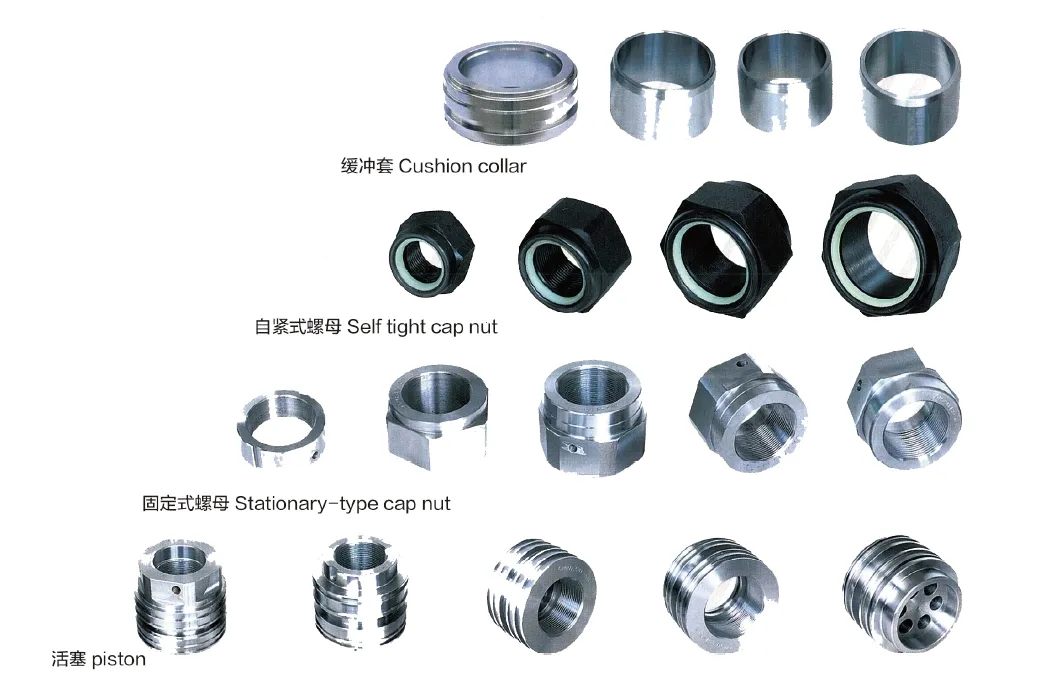
Safety Considerations and Environmental Factors
Implementing safety measures when using hydraulic cylinders is crucial to prevent accidents and ensure operator safety. Operators should be trained to understand the risks associated with hydraulic systems, including the potential for sudden failures or hydraulic fluid leaks. Properly maintaining the hydraulic system not only improves performance but also reduces the risk of environmental contamination from hydraulic fluids.
Fault Diagnosis and Common Issues
- Hydraulic Fluid Leaks: One of the most common issues with hydraulic cylinders is fluid leakage. This can arise from worn seals or damaged components. Regular inspections should focus on seal integrity and cylinder condition to prevent leaks.
- Inconsistent Movement: If the cylinder does not extend or retract smoothly, it may indicate low hydraulic fluid, air in the system, or internal wear. Checking fluid levels and purging air can often resolve this issue.
- Overheating: Overheating can occur due to excessive load or inadequate lubrication. Monitoring operational conditions and ensuring proper lubrication can help prevent overheating and subsequent damage.
Tips for Troubleshooting
When diagnosing issues with the Boom Cylinder, it is important to systematically identify potential problems. Start by checking fluid levels and inspecting for leaks. If symptoms persist, examine the hydraulic system for air pockets or pressure inconsistencies. Regular maintenance and timely repairs are vital for minimizing issues and ensuring efficient operation.
Preventive measures, such as adhering to scheduled maintenance routines and keeping the hydraulic system clean, can significantly reduce the likelihood of encountering major problems. By maintaining the cylinder properly, operators can enhance its lifespan and reliability.
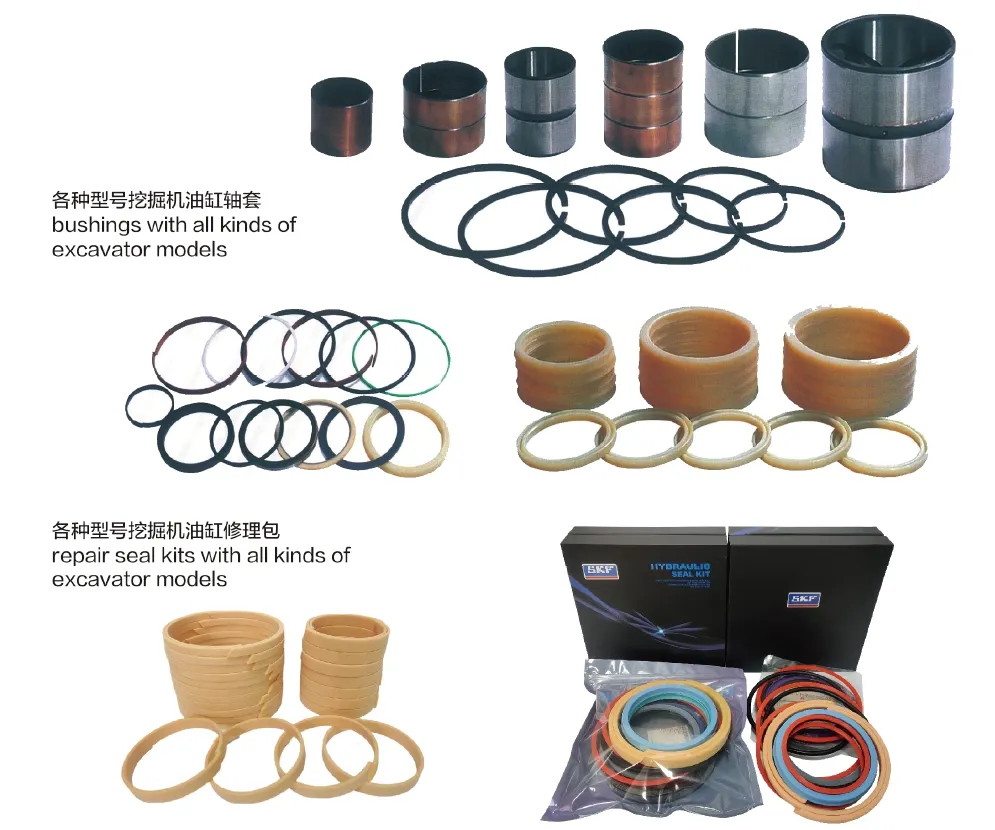
About Our Company
We are a leading manufacturer and wholesaler of hydraulic cylinders, specializing in providing high-quality alternatives for various hydraulic components. Our extensive range of products has established us as a major player in both domestic and international markets. Committed to excellence, we leverage refined manufacturing strategies and advanced production management practices.
Our offerings are backed by skilled technicians, state-of-the-art manufacturing equipment, and comprehensive testing systems that enhance our production capabilities. We strive to meet diverse customer needs with efficiency, precision, and quality, ensuring our products adhere to international standards and certifications.
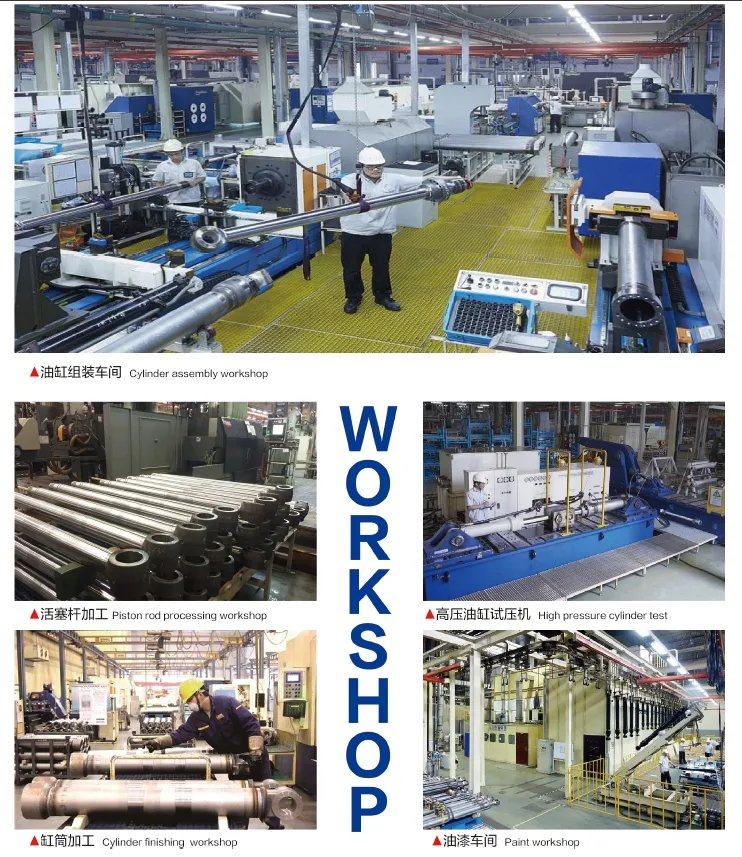
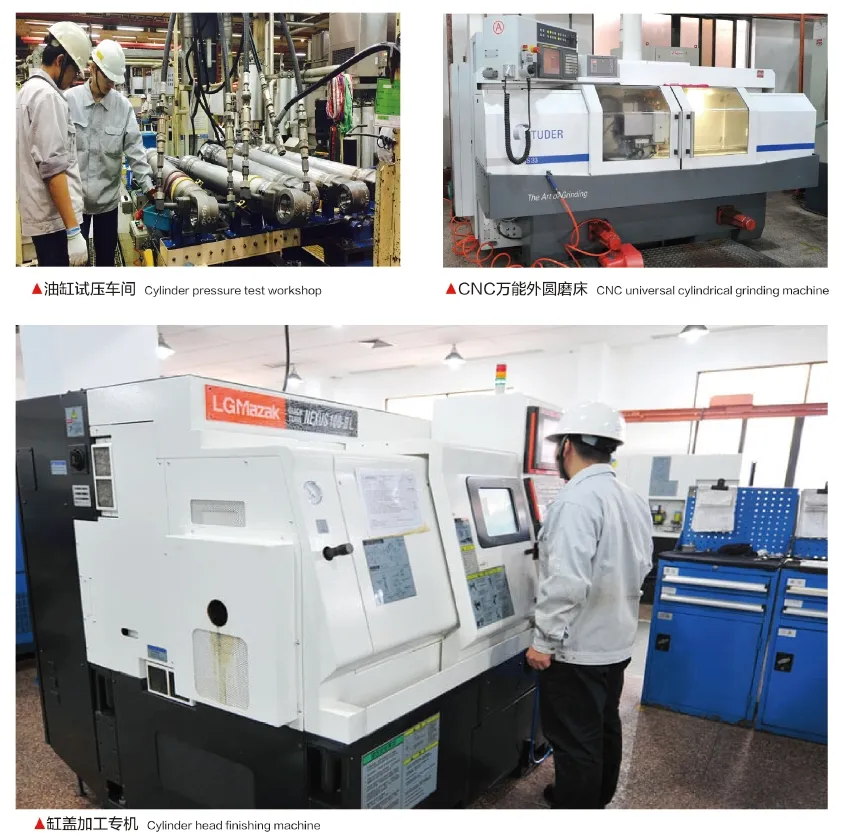
Author: lyl
Take a Tour of Our VR Factory:
Take a tour of our VR factory with the following
Hydraulic Cylinder Application:


